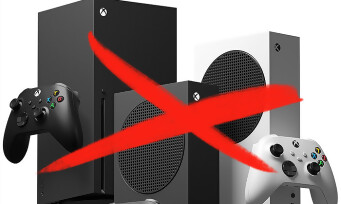We’ve known for a while now that Xbox’s new plan is all about Game Pass, slowly moving away from exclusive games – that’s no big secret. But it hits different when a former founding member of the original Xbox team actually says the Xbox hardware is dead. On June 28th, in a YouTube video simply called “The Future of Xbox,” Laura Fryer spoke her mind. She sounded clear, worried, and a little bitter, especially for someone who helped build the Xbox brand and now sees what she helped create fading away for the sake of profit and practical money moves. She talked about a huge shift Microsoft has made: going all-in on Game Pass and cloud gaming, and pretty much leaving their own hardware behind. There are also recent rumors that Microsoft’s gaming division might have layoffs soon. All this, plus what Laura Fryer is saying, suggests a big step in this change: it seems to hint at a slow exit from the console world. Goodbye dedicated console, hello games on other platforms, mobile phones, and streaming – it’s a lot like Netflix for movies and TV: be everywhere, all the time, without needing a specific physical thing
With this big strategy change, the question of what games they’ll actually have becomes super important, and that’s where things start to fall apart. Laura Fryer isn’t very hopeful that Xbox can deliver major hits that will define an era. “Where are the new hits?” she wonders, pointing to Clockwork Revolution as one of the few exclusive games Xbox still seems to be pushing. To make up for it, Microsoft appears to be betting on nostalgia and using its old library of games. The remake of Oblivion is mentioned as a promising success, but also a sign that they might be running out of fresh ideas. “They can just keep hiring others to make money by re-releasing their old games – games from an era when Xbox still knew how to make them,” she notes with a hint of irony. This is the question everyone seems to be asking, but no one’s really getting a clear answer. Just a few years ago, an Xbox was a recognizable console in your living room, solid, with a controller you’d know anywhere. Today? It could be your smartphone, a connected TV, a handheld device like the ROG Ally, or even a Meta Quest headset. An Xbox is more of an idea than an actual thing, it seems to tell us. Sarah Bond, the current head of the division, adds: “We are investing in our future hardware range: console, portable, PC, cloud, and accessories.” This is a polite way of saying the living room console isn’t the main focus anymore, just one piece of the puzzle
Microsoft isn’t hiding its plans anymore: the goal is to make Windows the go-to platform for video games, even if it means moving away from its own dedicated hardware. The Xbox PC app, which they even renamed, clearly shows they want to bring gaming fully into the Microsoft world, even if it means putting the actual console aside. In short, the current situation can be summed up with this statement: Xbox is no longer a console, it’s a service. This big change reminds us of what other tech giants like Google or Amazon have done, and it brings up a big question: in a world where everything becomes a service, where’s the soul? This is where Laura Fryer’s analysis really makes sense. What she truly regrets isn’t just that they’re dropping hardware, but the slow fading of a unique identity and gaming culture they carefully built since 2000 with the first Xbox. By trading the console for an app, Microsoft is taking a risky gamble: a future where Xbox isn’t a physical thing. And while this future might look good to investors, who knows if gamers will still connect with it. Laura Fryer’s analysis is a warning and a real heartfelt plea. Even if the current Xbox strategy looks good on paper (more platforms, easier access, more subscriptions), it might hit a wall when it comes to what Xbox truly is. The future of Xbox content is now a huge worry, as if they can still make those amazing games that everyone remembers comes into question. Microsoft seems to be counting on old memories and making money from its past games instead.
Have any thoughts?
Share your reaction or leave a quick response — we’d love to hear what you think!
